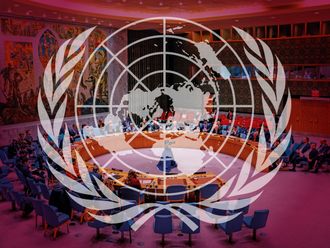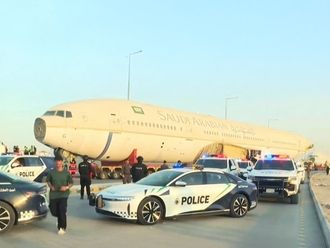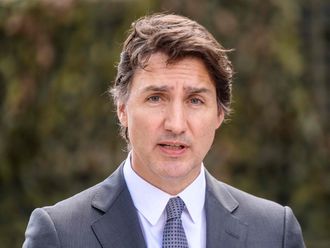Manama: An education system that does not promote critical thinking and freedom of speech is of little use, participants at the Doha Debates agreed.
However, the motion "This House believes education is worthless without freedom of speech" was carried with a slight majority of 53 per cent votes with 47 per cent of the participants opposing it.
The panelists supporting the motion said the objective of education was not just to impart knowledge but to help people make their own decisions and challenge the injustice that they see around them, Qatari daily The Peninsula reported on Tuesday.
The opposition said that education had value even without freedom of speech and could provide a better life to individuals and societies. Only an educated society can promote values such as freedom of speech, it argued.
Professor Dennis Hayes, founder of the Academics for Academic Freedom and professor of education at University of Derby, who spoke for the motion, opened the debate by saying that the basic role of education was to help people make up their minds and think critically.
"By voting for the motion you will be voting for the fundamental right of human beings to make up their minds,” he said.
Speaking against the motion, Najla Rizk, professor of Economics at the American University of Cairo argued that education could not be considered worthless even in the absence of freedom of speech.
"I come from Egypt and I am here because of my education. Many of you may be coming from oppressive societies but your education is not worthless. Education is a catalyst for change. Where are the Egyptian bloggers coming from? Educated women in Egypt speak up against abuses,” she said.
Dr Tariq Ramadan, philosopher and Islamic scholar who joined Hayes to support the motion, rejected Najla's views saying that education without freedom of speech was not only worthless but it could be even counterproductive.
“If we are spreading knowledge without promoting creativity and critical thinking, we will be creating parrots who are repeating what is being said. Education should help change the world," he said. "It should make us courageous to challenge opinion, the system and the governments."
He called for reforming the education system in the Arab world saying that it is only producing graduates who are not ready or capable of changing the systems that they live in.
Watkins, director of the Education for All Global Monitoring Report of the Unesco, who spoke against the motion said the issue in discussion was not the value of freedom of speech.
“The question is whether education is worthless without freedom of speech. If something is worthless we should discard it,” said Watkins.
"Nelson Mandela said education is the most powerful tool that you’ve got to change the world. If you don’t like your education system, if you don’t like your government, use your education and go change it… I was in Congo and would like to tell you that the difference in child death rate between women with secondary education and women with no education is a factor of four. Last month, I was in a slum in Nairobi, and found that parents are struggling to send their kids to schools. Now both these countries have relatively good freedom of speech,” Watkins said.












